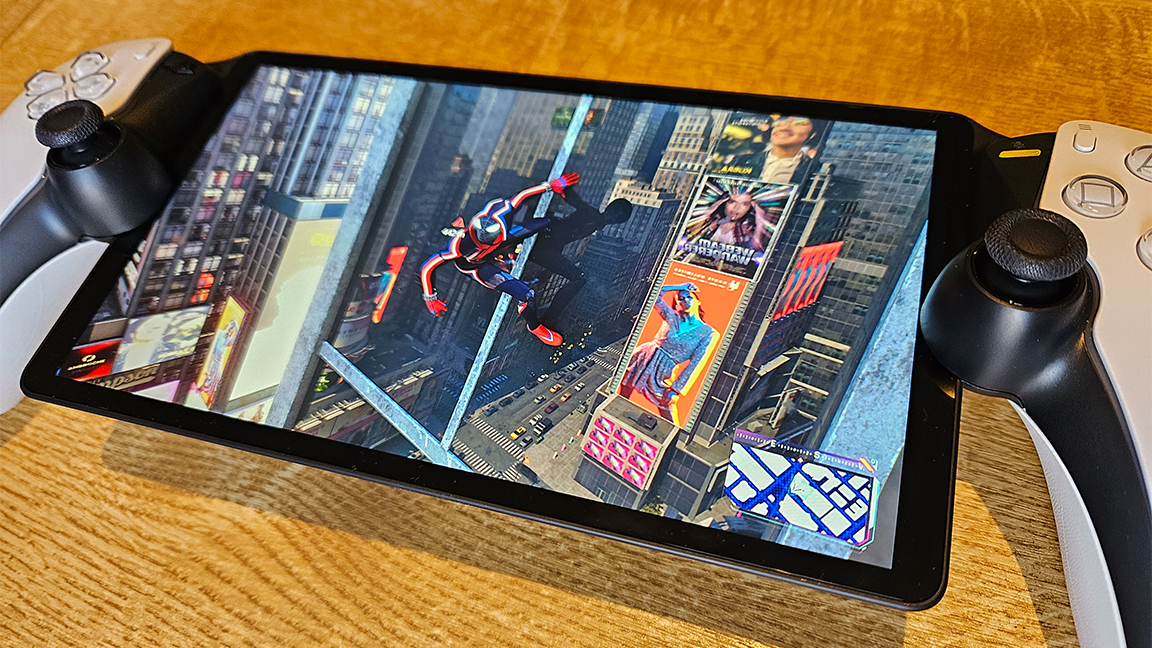
Ever struggled to tear yourself away from the PlayStation 5? I have, and I’m willing to bet you have too. The PlayStation Portal positions itself as a solution for the both of us to move the action from the big screen to just about anywhere – providing it remains connected to your console (the device is Remote Play only). Just don’t expect more than that.
Playing Spider-Man 2 while covered in blankets, letting God Of War Ragnarok’s cutscenes play while you hang washing, or exploring the pants-ruining Alan Wake 2 in a pantless environment is now possible, beaming from your PS5 right to the PlayStation Portal between your hands. (Reminder, you will need a PS5 to use this handheld and we track the latest PlayStation 5 deals as they happen.)
More than just providing a way to play the best PS5 games beyond the confines of your big TV, the PlayStation Portal is simply nice to play on. The genius hardware wizards at PlayStation have done it again – it’s a beautiful device, well designed. Providing you want a very specific solution to a very specific problem, have a fantastic internet connection, and want to pony up £200. As editor of a PlayStation magazine, PLAY , this should be a dream come true, though in practice it’s not quite there.
PlayStation Portal review: the hardware
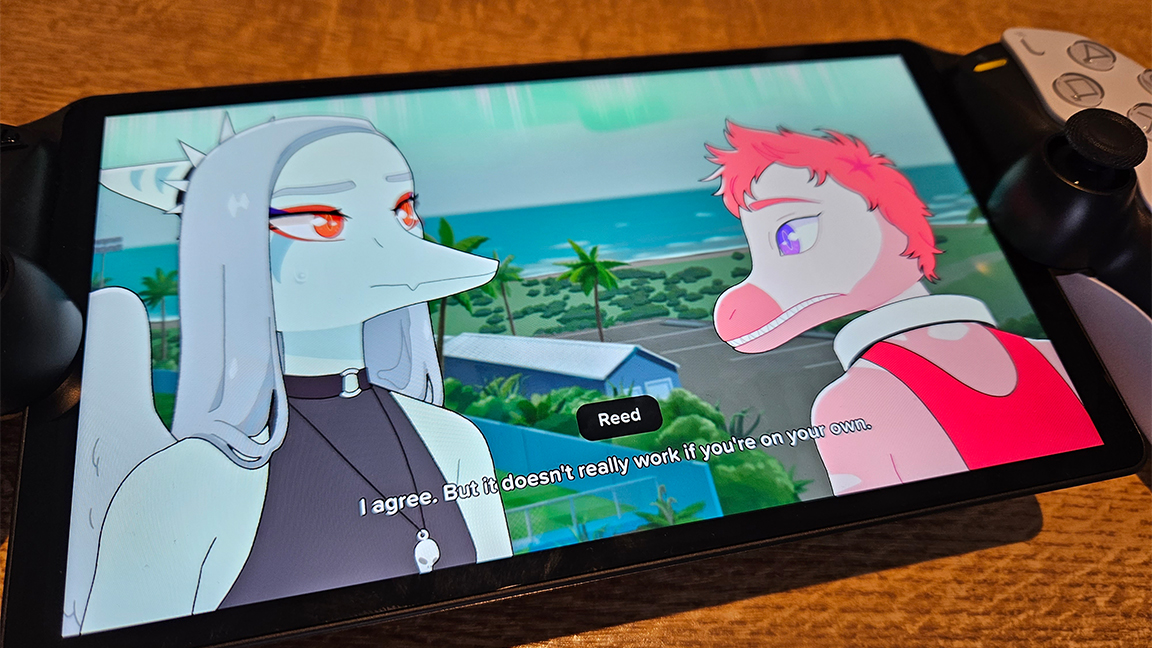
The PS Portal looks a bit weird, doesn’t it? An LCD screen grafted in the middle of a DualSense. But one thing’s for sure: the DualSense’s design is phenomenally comfy, and the same is true of the replicated form here. Holding it in the hands feels familiar in a good way, and the whole thing is light enough that it’s comfortable to play on (similar to the Nintendo Switch).
The big selling point here is the DualSense design that’s been translated to these (slightly shorter than the real thing) handles. While other remote options exist, few can deliver the intensity offered by the native haptic feedback and adaptive triggers. There’s something to be said for feeling the left-right thump in your hands as Miles Morales runs up a skyscraper vertically, and by placing the screen between them it almost feels a bit more immersive than when you’re staring at a screen across the room.
With one button press the on-screen portal whirrs and spins, and zooms in to have your home PS5 takeover the screen in your hands
Set-up is simple enough – you’re guided through connecting to WiFi and then linking to a PS5. Due to working within PS5’s own systems, this is pretty painless as it’ll automatically sync-up without having to delve through menus for specific connection codes (as you do with some third-party apps), though you will need to have your PS5 in rest mode and have Remote Play enabled.
From there, actually connecting is just as straightforward. With one button press the on-screen portal whirrs and spins, and zooms in to have your home PS5 takeover the screen in your hands. PlayStation knows how to build a good UI that feels satisfying and premium. The only downside is, should you have connection problems, there’s little feedback in what you’re getting wrong. Connecting to the same WiFi as your PS5 is a breeze, and clearly what it’s designed for, and the system itself doesn’t guide you for much beyond that (WiFi is a must, though you should be able to use a mobile hotspot from further afield).
PlayStation Portal review: streaming performance
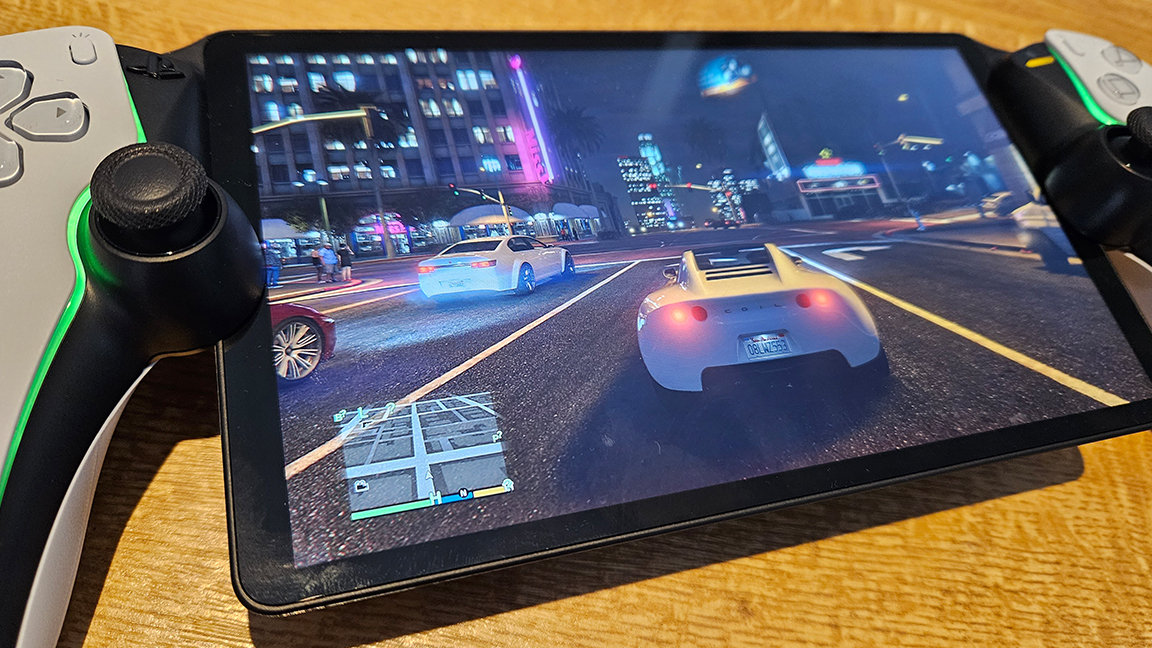
PlayStation recommends a minimum internet speed 5mbps for okay performance with 15mbps for ideal. My time with the PlayStation Portal is on an average of 50mbps, and it’s not without some issues. Though, living in Bath (that’s a historical town in England for you far-off readers), I’ll be the first to admit that even when the internet says it’s good it can fluctuate quite a bit – which might explain why you rarely see Jane Austen top the COD leaderboards.
But, more often than not, streaming games to the PlayStation Portal works really well. Cruising through the streets of GTA5’s Los Santos is smooth, punching-up criminals as Spider-Man as well, and even clambering around the ruined Los Angeles in Horizon Forbidden West: Burning Shores (I’m catching up on the DLC).
PS Portal is having issues, it fluctuates between resolution cliff-drops and delayed or dropping input
Though it should be said that the really visually impressive PS5 games are where you’ll notice the dips in streaming quality the hardest. It can be hard to appreciate the sheer artistry of Horizon Forbidden West’s environments when the PlayStation Portal makes the lush, swaying red grass a muddy, choppy mess.
When PS Portal is having issues, it fluctuates between resolution cliff-drops and delayed or dropping inputs – which can frustrate when gameplay calls for precision. Some of the games that work best are, somewhat ironically, not the PS5 exclusives – narrative heavy indies like Goodbye Volcano High or Saltsea Chronicles, or lengthier RPGs like Star Ocean: The Second Story R of Persona 5 Tactica. And those are available elsewhere to play on the go already (even if just by SteamDeck).
Although, for me, those big budget PlayStation exclusives work well most of the time. But it can only take a few bad moments to suck you out of an otherwise immersive game. The unfortunate truth of remote play gaming is, by its nature, always flirting with a flawless gameplay experience, and can only deliver it some of the time. Make sure you’re confident in the quality of your internet before you jump in – you’re trading a known great couch PS5 experience for one that’ll never be quite as good for the benefit of going handheld. That’ll fit into the lives of some better than others.
PlayStation Portal review: how it measures up
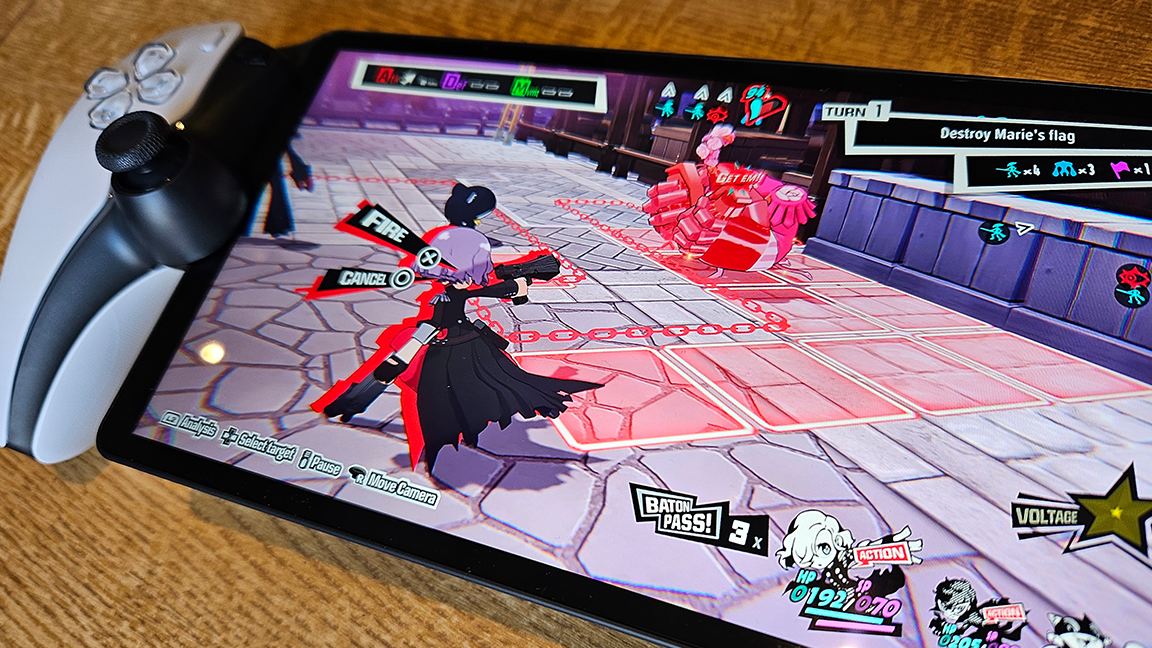
For some of you, and for me, a lot of what I just wrote may sound familiar and not exactly new. The PlayStation Portal is a dedicated Remote Play handheld but not the debut of Remote Play for Sony’s console ecosystem – far from it.
I’ve been dipping into RPGs away from my main TV for ages thanks to official and third-party smartphone apps (which are on tablets too). Even a DualSense can be synced via Bluetooth, and there are cheap and pretty good clips you can use to snap your phone onto the controller itself. Lately I’ve been using a Backbone One, which snaps onto the sides of the phone Switch-style (not unlike the PlayStation Portal come to think of it), which has been great.
There’s a multitude of other ways to Remote Play as well. PCs and laptops also have apps that can do it, and that includes SteamDecks as well. All these solutions, unlike the PlayStation Portal, also notably can do loads of other things as well as just Remote Play.
Not to mention, if you need to vacate the TV sharpish to make way for a Chicken Run and Chicken Run 2 double-bill this Christmas, you could just… move the PS5 to another screen. It’s worked for me for years, and most households in this day and age will have another screen. It’s just a couple of wires.
PlayStation Portal review: should I buy one?
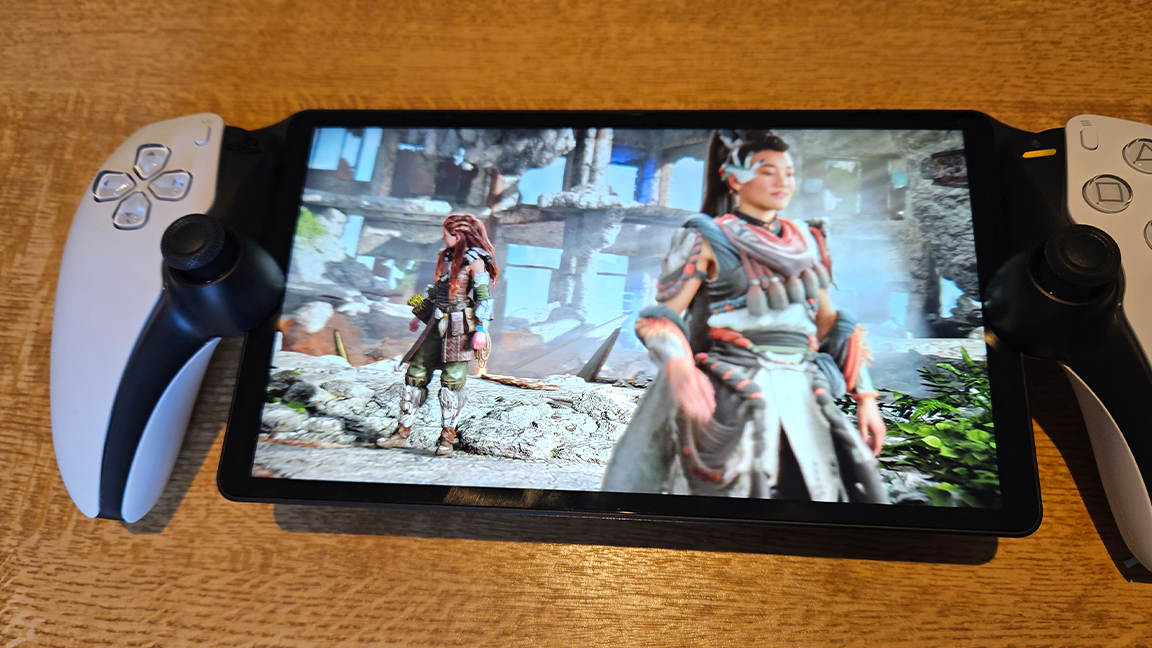
While asking for the handheld to download games would be a pretty big ask (though considering you can buy PS1 and PSP games on PS5, it could likely handle running them just fine), you have to question the value of a £200 device that can only do this one very specific thing.
Considering PlayStation just launched its new PS5 Streaming service in October, the lack of support for it here feels like a big missed opportunity – to reiterate, PlayStation Portal can only connect to your home PS5 on your own networks to play your own already-downloaded games. In my comparison tests, the connection seemed just as good via other solutions (and my phone sometimes seemed better, though that’s anecdotal).
It’s a strange one, then. It’s a well-made machine that often feels great to play, but it’s also hard to recommend. When I’m asked how it is, I end up giving enough asterisks to make Uderzo and Goscinny give me side-eye: How is your internet connection? How often will you need it? Could you just use a device you already have? Are you sure you want a dedicated device just for this one thing?
If you do, and that’s totally fair given the luxe feel of the hardware here, then fair enough, you spend that hard-earned money on whatever makes you happy. Though I wouldn’t like to be trying to sell it myself.







